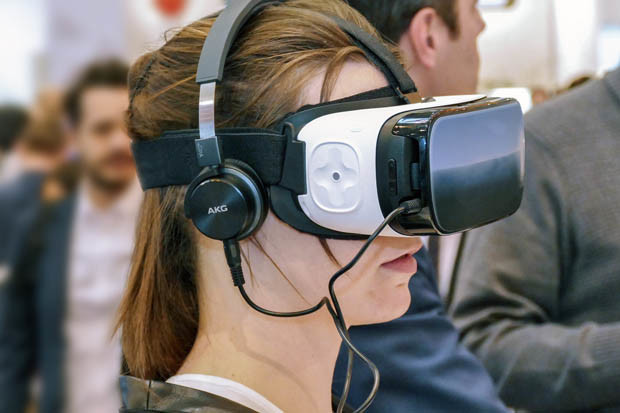Over the past three years, publishers have used virtual reality (VR) and 360-degree video as a new way to experiment with immersive storytelling, producing a range of features from high-end headset material to that which can be seen on a Facebook timeline.
Fast technological advances in the field have made it increasingly available for consumers to enjoy VR, with many projects able to be viewed on a smartphone – often supplemented with just a cardboard headset.
But the industry is now past its experimentation phase, with news organisations more focused on addressing the challenges of content and user experience in a bid to drive the industry forward, a new report from the Reuters Institute for the Study of Journalism has found.
"The early content has been about creating stories that work, but the next stage is focusing more on the right stories for different audiences," said Zillah Watson, author of VR for News: The New Reality?.
"It is still some years from what it could become – in the same way that, ten years ago, no one could have foreseen the role of social media today."
Watson, who has led the editorial development of VR experimentation at the BBC, interviewed 20 journalists from news organisations in Europe and America, including The New York Times, Die Welt, ARTE, the Guardian and Euronews, to examine on-going developments and challenges within the VR industry.
Strategy and investment
Although virtual reality has now become an integrated part of many newsrooms, many publishers are holding off making large investments in the field.
"Developments in news VR are one of a series of bets that news organisations are making on future initiatives: some will pay off, some won’t," she wrote in the report, noting that those with financial stability are more able to bet on VR to enhance their brands and give them a headstart in the field.
Smaller brands, the report noted, may be better off creating the lower-cost 360-degree video at this stage to avoid any risk before the industry establishes itself further.
Content
There still needs to be far more high-quality immersive content to attract audiences to VR and to stop them turning off, the report found.
"But there is an inherent problem around quality versus reach: good, properly immersive VR requires headsets, which most consumers do not yet have," wrote Watson.
"Many news organisations justify the current approach of creating 360-degree video as a ‘gateway to VR’ and helping to educate consumers.
"However, it is still too early to judge whether that will work – the danger is that poor experiences could put consumers off VR."
Watson explained that it is important for news organisations to "be creative about finding opportunities to take VR out to their audiences" in order to get more people interested in the medium.
The more people are aware of virtual reality and familiar with the technology, the more they can embrace it. This will also help to prevent a moral panic which could be detrimental to the virtual reality industry.
Hardware
The report noted that there are too many platforms available at the moment, making it expensive to produce content for a range of devices, while bandwidth is also an issue preventing some viewers consuming this content.
"Platforms and device manufacturers need to up their game if they are going to get mainstream audience adoption," wrote Watson.
"We have to make sure that VR is a frictionless experience for audiences, where we are understanding their needs for news.
"As an industry, we have to present a united front when talking to the technology platforms, deciding how we want news content to be discovered and consumed by people."
Audiences and monetisation
"Monetising the medium is essential if it is to survive," wrote Watson, noting that news organisations such as RYOT, HuffPost and The New York Times are currently using a branded content model.
But this remains experimental, and technology partnerships may not be able to sustain news VR expansion indefinitely, so the industry will have to find ways to make it pay for itself if virtual reality is to be a part of its long-term strategy.
"For that, audiences have to embrace VR in far greater numbers.
"Yet despite the importance of audiences to the entire industry, there has been very little systematic audience research to date."
Indeed, VR news teams still have a poor understanding of its audience both in terms of content, VR discovery and attitudes to the technology and hardware.
"It is still so early in the process – we haven't had enough time to do systematic audience testing because we've only just worked out how to make good content," Watson told Journalism.co.uk.
"Playing with 360 may be fun for journalists, but the audience needs to be put at the heart of any serious future plans for VR."
Both the news and tech industries are aware of the challenges that need to be overcome, she said, so in order to bring audiences the many benefits of VR, they need to continue to work together to solve these problems.
Free daily newsletter
If you like our news and feature articles, you can sign up to receive our free daily (Mon-Fri) email newsletter (mobile friendly).
Related articles
- The Public Method: redefining how to measure journalism's value
- Why user needs have the power to stop audiences feeling overwhelmed by the news
- How FT uses polls to engage readers and grow subscriptions
- Predictions for journalism 2025: communities over clicks, trust over traffic
- How The Telegraph turns community into content












